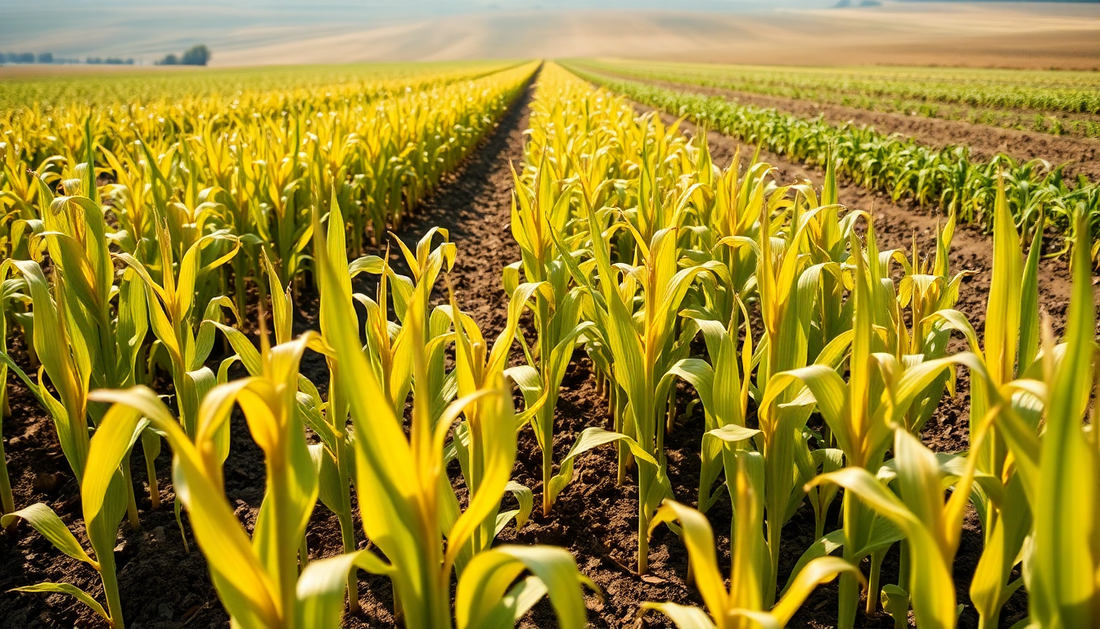
Why Are My Corn Plants Stunted and Not Growing?
As a gardener, there's nothing more frustrating than watching your corn plants struggle to grow and thrive. Stunted corn plants can be a real challenge, but with the right information and a bit of troubleshooting, you can get your corn crop back on track. In this blog post, we'll explore the common causes of stunted corn growth and provide you with practical solutions to help your corn plants reach their full potential.
Understanding Corn Growth and Development
Corn, scientifically known as Zea mays, is a staple crop grown around the world. It's a warm-season annual that thrives in well-drained, nutrient-rich soil with ample sunlight. Corn plants typically go through several distinct growth stages, including germination, vegetative growth, tasseling, silking, and grain fill.
During the vegetative growth stage, the corn plant focuses on developing its root system, leaves, and stem. This is a critical period for the plant's overall health and productivity. If the corn plant experiences any stress or disruption during this stage, it can lead to stunted growth and reduced yields.
Common Causes of Stunted Corn Growth
There are several factors that can contribute to stunted corn growth. Let's explore the most common culprits:
1. Soil Nutrient Deficiencies
Corn plants require a delicate balance of essential nutrients, such as nitrogen, phosphorus, and potassium, to grow and thrive. If your soil is lacking in any of these key nutrients, it can result in stunted growth, discolored leaves, and poor overall plant health.
2. Compacted Soil
Corn plants need well-aerated soil to develop a robust root system. If the soil is compacted, it can restrict root growth and limit the plant's ability to access water and nutrients.
3. Inadequate Moisture
Corn plants require consistent moisture throughout their growth cycle. Periods of drought or waterlogged soil can both lead to stunted growth and other issues.
4. Pest and Disease Infestations
Pests, such as corn borers or aphids, can damage the plant's leaves, stems, and roots, hindering its ability to grow. Similarly, diseases like corn smut or leaf blight can also contribute to stunted growth.
5. Genetic Factors
In some cases, stunted growth may be a result of the corn plant's genetic makeup. Certain corn varieties or hybrids may be more prone to stunted growth due to their inherent characteristics.
Strategies for Addressing Stunted Corn Growth
Now that we've identified the common causes of stunted corn growth, let's explore some practical solutions to help your corn plants thrive:
1. Soil Testing and Nutrient Management
Conduct a soil test to determine the nutrient levels in your soil. Based on the results, you can amend the soil with the appropriate fertilizers or organic matter to address any deficiencies.
2. Improving Soil Structure
Incorporate compost or other organic matter into the soil to improve its structure and aeration. This will help promote healthy root growth and nutrient uptake.
3. Optimizing Moisture Levels
Ensure that your corn plants receive consistent, adequate moisture throughout the growing season. This may involve implementing an irrigation system or adjusting your watering schedule based on weather conditions.
4. Pest and Disease Management
Regularly inspect your corn plants for signs of pests or disease, and take appropriate action to address any issues. This may involve using organic pest control methods or applying fungicides if necessary.
5. Selecting Appropriate Corn Varieties
Choose corn varieties that are well-suited to your local climate and growing conditions. This can help ensure that your plants are genetically predisposed to thrive in your specific environment.
By addressing the root causes of stunted corn growth and implementing these strategies, you can help your corn plants reach their full potential and enjoy a bountiful harvest.
Conclusion
Stunted corn growth can be a frustrating challenge, but with the right knowledge and a proactive approach, you can overcome it. By understanding the common causes of stunted growth and implementing the strategies outlined in this blog post, you'll be well on your way to growing healthy, thriving corn plants. Remember, patience and attention to detail are key when it comes to gardening, so don't be discouraged if it takes some time to see the results you're looking for. With a little effort and a lot of love, your corn plants will be reaching new heights in no time.







No comments